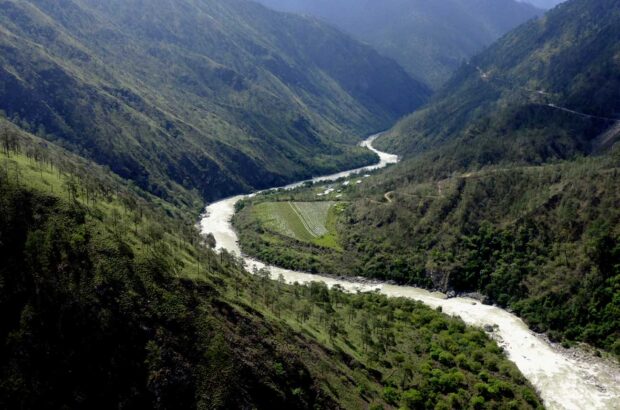The building of ten giant wind turbines in one of Italy’s most fashionable wine regions has just been approved – to the outrage of local wine producers.
The 110m towers are to be situated directly outside of the hilltop town of Scansano in the heart of the Maremma countryside.
Grape growers and wine producers of top Super Tuscans as well as the recently revived Morellino di Scansano located along this strip of Tuscan coastline dubbed ‘Italy’s new California’, are trying to block the wind farm. They fear its negative effects will kill the area’s popularity among wine lovers and tourists – and will harm the area’s microclimates.
The Consortium for Morellino di Scansano, and many of the region’s producers – including the Cooperativo di Scansano, which buys the highest percentage of local grapes from surrounding vineyards and whose cellar will be adjacent to the proposed windmills – as well as Jacopo Biondi Santi, are taking action. They have just formed the Scansano Environmental Protection Committee to fight against the plan.
Biondi Santi, of the legendary Montalcino family who bought the imposing Castello di Montepo’ estate near Scansano where he makes his famous Super Tuscans including Schidione and Sassolloro as well as Morellino, said, ‘We in Scansano are facing a grave danger that threatens our unspoiled environment’.
Biondi Santi, whose estate is directly opposite the proposed site for the windmill towers said, ‘If this project is realised, it will disfigure the countryside, one of the most beautiful in Italy, which has for years imposed strict building codes to maintain the purity of its environment.’
He added that the project would harm the area’s richly varied microclimates, change beneficial wind currents (which according to local producers allow them to use less fungicides than in other areas of the Peninsula), and cause noise pollution that would force the area’s many protected species away from their natural habitat.
‘A facility like this might work in another area,’ he said, ‘but not in an area dependent on tourism, consisting mainly of wine tourists who come here to visit the area’s vineyards and cellars, which have been built in harmony with the surrounding natural environment.’
Those opposed to the development argue that a collapse in tourism would have a domino effect on wine producers, farm hotels, shops and restaurants, and would be devastating for this once poverty-stricken area which has undergone a renaissance thanks to its recently discovered vocation for fine wine production.
According to Klaus Falgiani, who heads the Scansano project for turbine manufacture Gamesa, there would be no dangerous emissions from the turbines, and the energy provided should be enough for a city with about 50,000 people.
He suggested opponents of the scheme have few grounds for complaint. He said the regional government of Tuscany has assured Gamesa the area is not a natural habitat for endangered species.
‘The chosen site has no real merits,’ he told decanter.com. ‘The only effect would be the negative visual impact of the countryside, but since we feel the surrounding countryside has already been degraded, the visual impact is not an issue to be considered. As for the noise pollution, I don’t think noise will stop the grapes from growing.’
Written by Kerin O’Keefe






